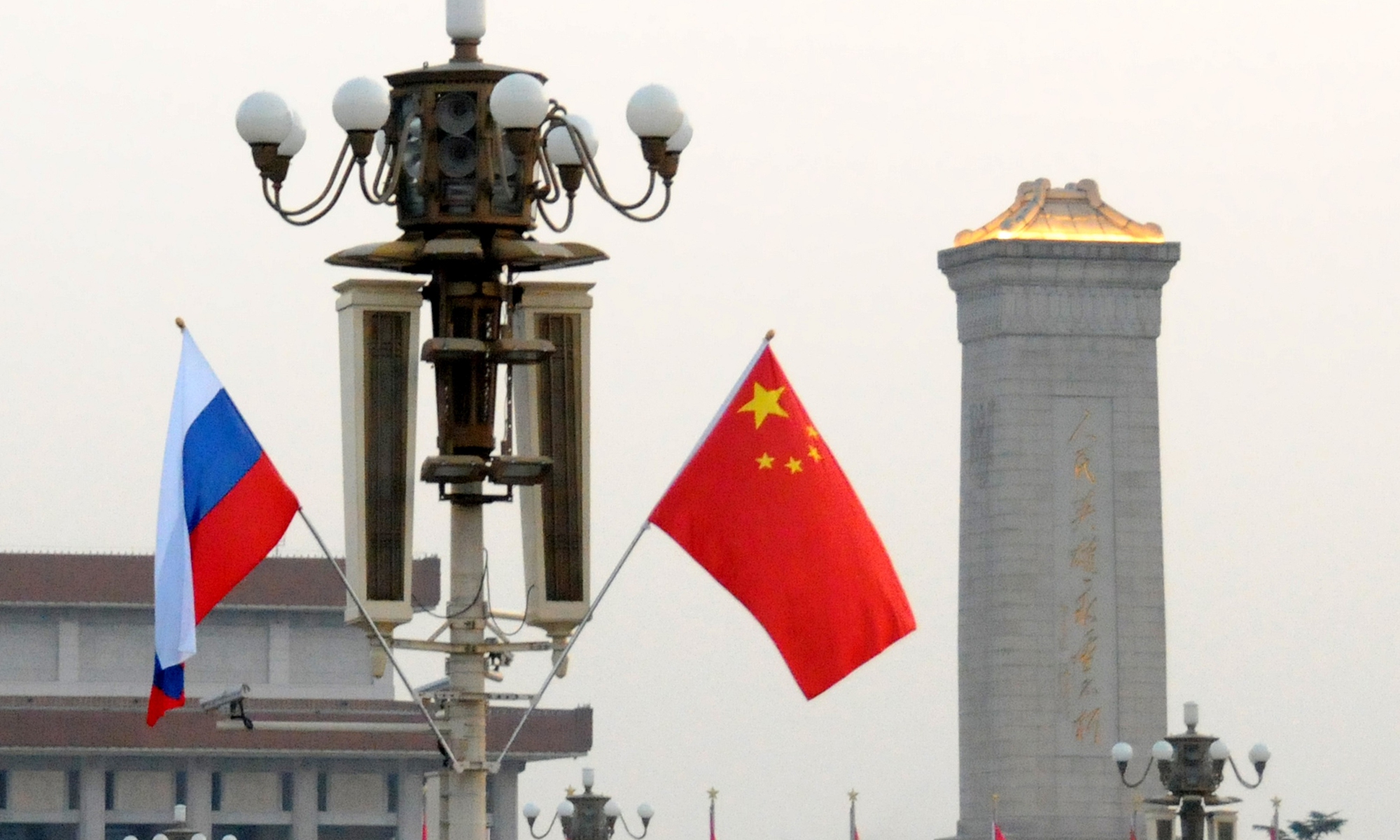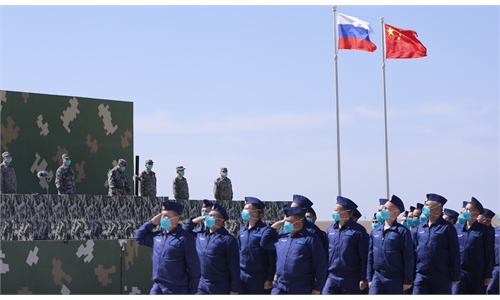
China-Russia Photo: VCG
Ahead of the US-initiated summit of democracy, the Permanent Mission of China to the United Nations and Permanent Mission of the Russian Federation to the UN jointly held an online seminar on democracy and human rights on Thursday.
The forum, themed "Democracy and human rights: common goals with diversified approaches," invited renowned experts and scholars, which Chinese observers said was a good opportunity to tell the world that the meaning of democracy and human rights is not decided by the West, and the West cannot force others to carry out the same approach to the shared values of humanity.
Yang Jin, an associate research fellow at the Institute of Russian, Eastern European and Central Asian Studies at the Chinese Academy of Social Sciences, told the Global Times that the forum shows that the two responsible major countries attach great significance to the development of democracy and human rights, and he believes such a forum is expected to be scaled up with more countries and regions attending.
Ambassador Li Song, Chargé d’affaires of the Permanent Mission of China made the opening remarks.
"Chinese food is delicious, but it is only one of the delicious foods in the world, and we should not force others to eat Chinese food nor make people only eat Chinese food," Li said. Similarly, he noted that China with a splendid civilization that has evolved over the course of more than 5,000 years learns from other civilizations and welcomes suggestions, but we will never accept bossy preaching on democracy and human rights.
Gennady Gatilov, Permanent Representative of the Russian Federation, said certain countries regard themselves as the model for the rest of the world, and the old-brand democratic countries are trying to contain other countries and regions that have different policies over democracy and human rights.
Equating freedom with laissez-faire leads to conflict that does not help the development of individuals, societies and nations, Gatilov said.
Some states pretending to be "bastions of democracy" and hold the Cold War mentality are proposing initiatives based on their own democratic standards that will further deepen divisions between nations, run contrary to the goal of making the world a better place and undermine international order, the representative said.
Marcos Pires, an associate professor at São Paulo State University, Brazil, said that there is no single model, and no single path like the British or US governments try to impose on other peoples to achieve these goals. Such assumptions and actions reveal an arrogance to think that the Western political and economic model is universal and the only one that can lead individuals to the full realization of their being, Pires said.
The US government was able to prove, in practice, that this idea is wrong, as they maintained a billion-dollar war in Afghanistan and had to withdraw when it was impossible to impose a model rejected by the majority of the population, Pires noted.
"There is a universal aspiration for democracy and fairness, but no universal political model fits all realities," the professor said.
Robert Kuhn, a commentator on international politics and Chairman of the Kuhn Foundation, focused on what China's whole-process people's democracy and the achievements of China's poverty alleviation at his presentation.
Citing the Chinese leader's phrase, he said democracy for the Chinese is "a shared value of humanity" and "a key tenet" upheld by the Party and the Chinese people to be used "to solve the problems that the people want to solve."
For China, poverty alleviation exemplifies human rights, the expert noted.




